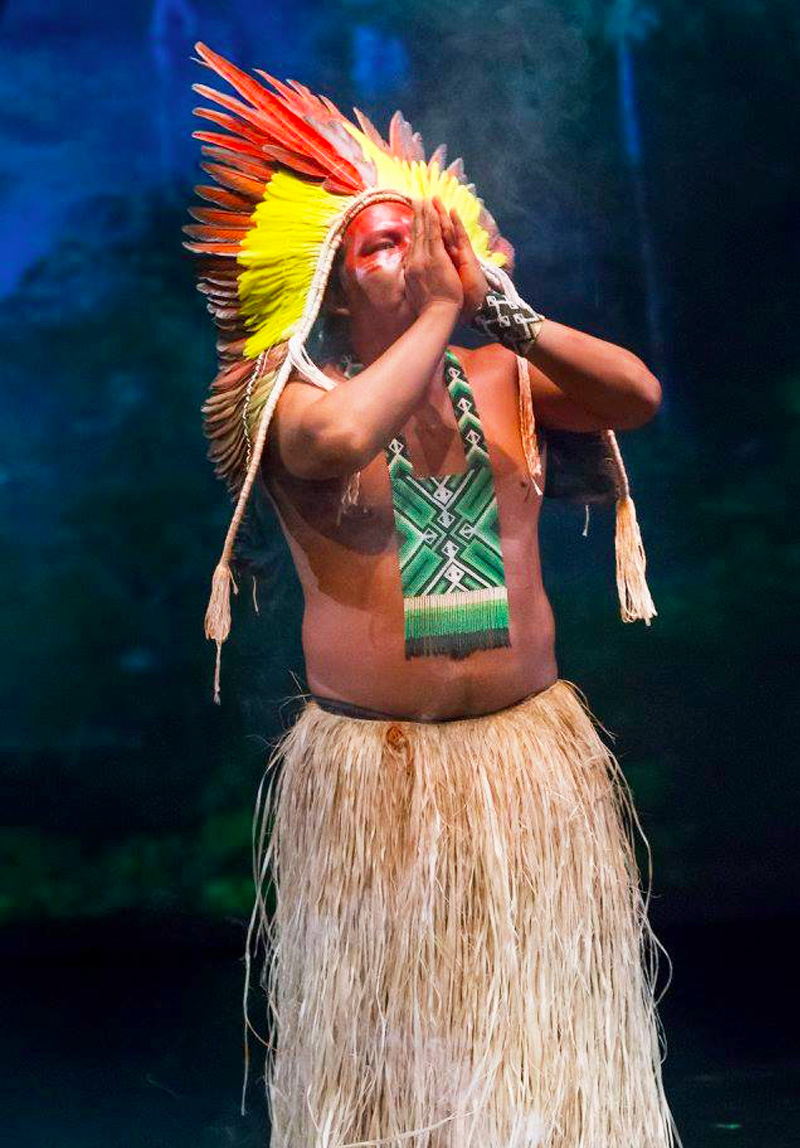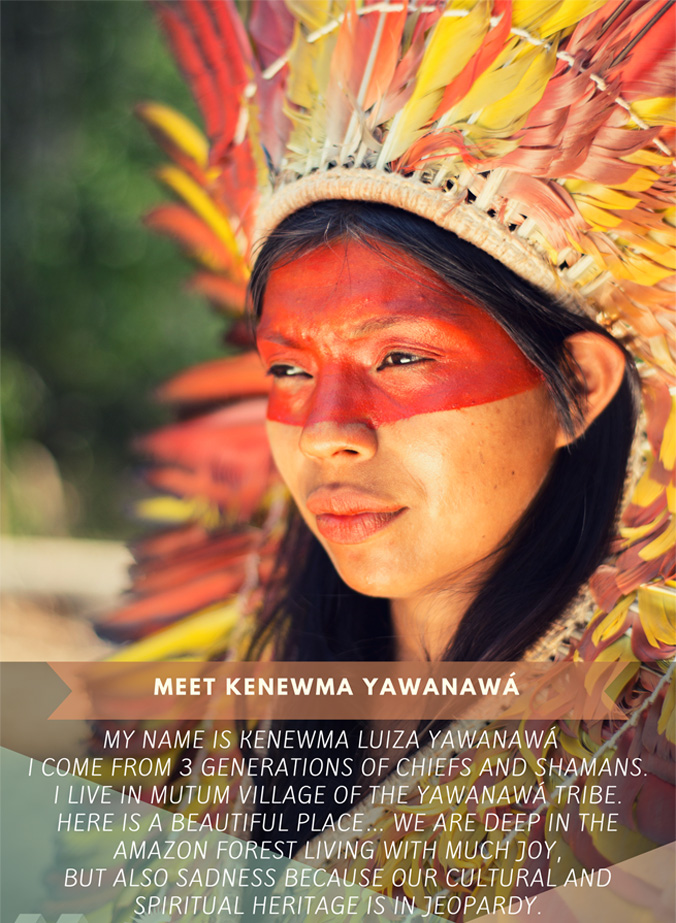
sacred music. tribal dance.
A CULTURAL ENCOUNTER
Sacred Music. Tribal Dance. Experience the rituals of the Yawanawá tribe as they journey from their home in the Brazilian Amazon to bring an indigenous celebration that is sure to transport you. Hear songs so ancient, that your very DNA will vibrate with the inherent recognition of sacred music from the depths of the forest.
Celebrating Culture to Save It
A group of 7 Yawanawá traveled to 5 cities across the U.S. to sing ancestral songs, play traditional games, and share their rich culture, to save their way of life, their language, and their spiritual heritage from extinction.
U.S. Encounter Tour 2016
In September – October 2016 we visited: Miami, Florida | Austin, Texas | New York City | Vermont | Ojai, California
Our celebration reached over 2,300 people, nearly 900 of which were children, who received this incredible experience gratis, through the generous support of our donors.
We raised over $34,000 for Mutum Village Social Projects, improving infrastructure and food security for community members, and enhancing the provision of education, health services, and communication technologies to help monitor Yawanawá lands.
Since the tour, we’ve built a gorgeous 3-story apuí tree house which serves as the main location to host visitors of Mutum Village, a main income source for the tribe. The first level serves as a community center for meetings and large meals; the second level provides lodging for traveling guests; and the third level provides a spectacular view of the forest canopy, which can be used for ceremony or to simply enjoy while sipping morning coffee.
Pigs, chickens and a bull were also transported to Mutum for the Food Security program and a Fish Aquiculture Pond installed with 1,000 native Amazonian fingerlings.
The tribe’s initial inspiration to build a Traditional School was delayed by the pressing community needs mentioned above, but a new campaign is mounting to now manifest the School of Traditions.


Kenewma’s Testimony
My name is Kenewma Luiza Yawanawá and I come from 3 generations of chiefs and shamans. I live in Mutum Village of the Yawanawá tribe and here is a beautiful place… We are deep in the Amazon forest living with much joy, but also sadness because our cultural and spiritual heritage are in jeopardy.
Growing up I learned to speak Portuguese, as the other children were taught. Missionaries came here before I was born and told my people to change. Change the way we’ve been living for centuries, and learn to live like everyone else. Because of this, I had confusion about my own identity. I did not fit in when I tried to go to university but I also no longer felt like I was truly a Yawanawá.


